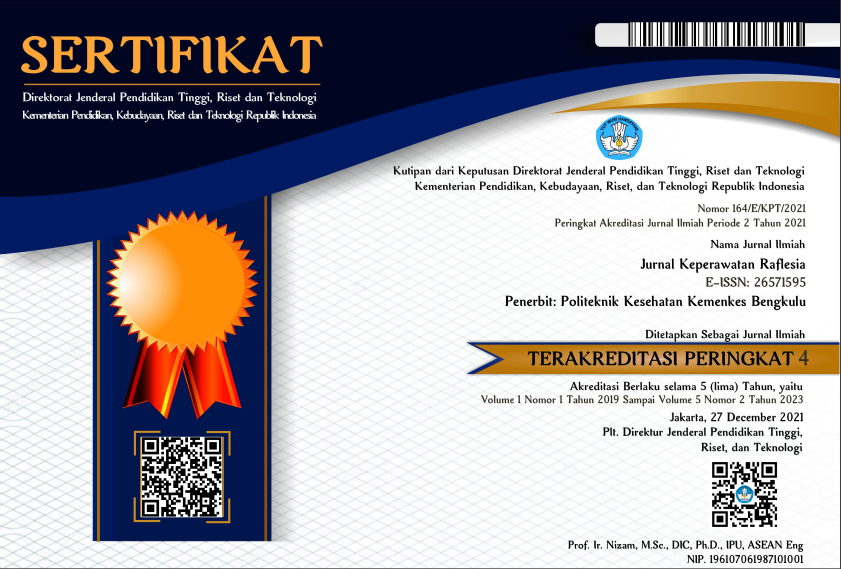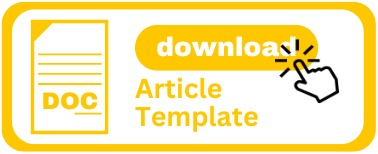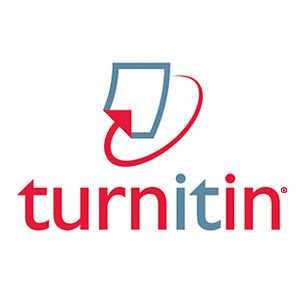Pengetahuan Gizi dan Riwayat Pola Makan Ibu Hamil Berhubungan dengan Kejadian Stunting pada Balita
DOI:
https://doi.org/10.33088/jkr.v5i2.912Keywords:
nutritional knowledge, history of pregnant women's diet, stuntingAbstract
Stunting is a global problem including Indonesia and a threat to developing countries related to the impact of malnutrition, malnutrition and infection on children, so this problem is urgent to be addressed. This study aims to analyze the relationship between nutritional knowledge and dietary history of pregnant women with the incidence of Stunting cases. The cross-sectional correlation design study used the purposive sampling method for as many as 53 respondents, based on the guidance of the results of height measurements 6 months earlier in the MCH book and researchers measured height and weight together with nurses/midwives during Posyandu activities in the month of data collection. The research was conducted for 1 month in the working area of the Puskesmas Tanah Tinggi Kota Tangerang. Data were collected using maternal nutrition knowledge questionnaires and dietary history of pregnant women developed by researchers with reliability results of 0.935 and 0.912. The results of the chi-square statistical test, show that low nutritional knowledge in pregnant women can trigger six times the incidence of Stunting with p: 0.002 and poor diet of pregnant women contributes seven times the incidence of Stunting with p: 0.003. Stunting is triggered by low maternal knowledge about nutrition and poor diet during pregnancy. Providing education related to nutrition for pregnant women and diet is better given before pregnancy, especially for adolescent girls or couples before marriage by utilizing adolescent posyandu.
Downloads
Published
Issue
Section
License
Authors who publish with JURNAL KEPERAWATAN RAFLESIA agree to the following terms:
- Authors retain copyright and grant the Jurnal Keperawatan Raflesia right of first publication with the work simultaneously licensed under a Creative Commons Attribution License (CC BY-NC-SA 4.0) that allows others to share (copy and redistribute the material in any medium or format) and adapt (remix, transform, and build upon the material) the work for any purpose, even commercially with an acknowledgement of the work's authorship and initial publication in Jurnal Keperawatan Raflesia.
- Authors are able to enter into separate, additional contractual arrangements for the non-exclusive distribution of the journal's published version of the work (e.g., post it to an institutional repository or publish it in a book), with an acknowledgement of its initial publication in Jurnal Keperawatan Raflesia.
- Authors are permitted and encouraged to post their work online (e.g., in institutional repositories or on their website) prior to and during the submission process, as it can lead to productive exchanges, as well as earlier and greater citation of published work (See The Effect of Open Access).

















